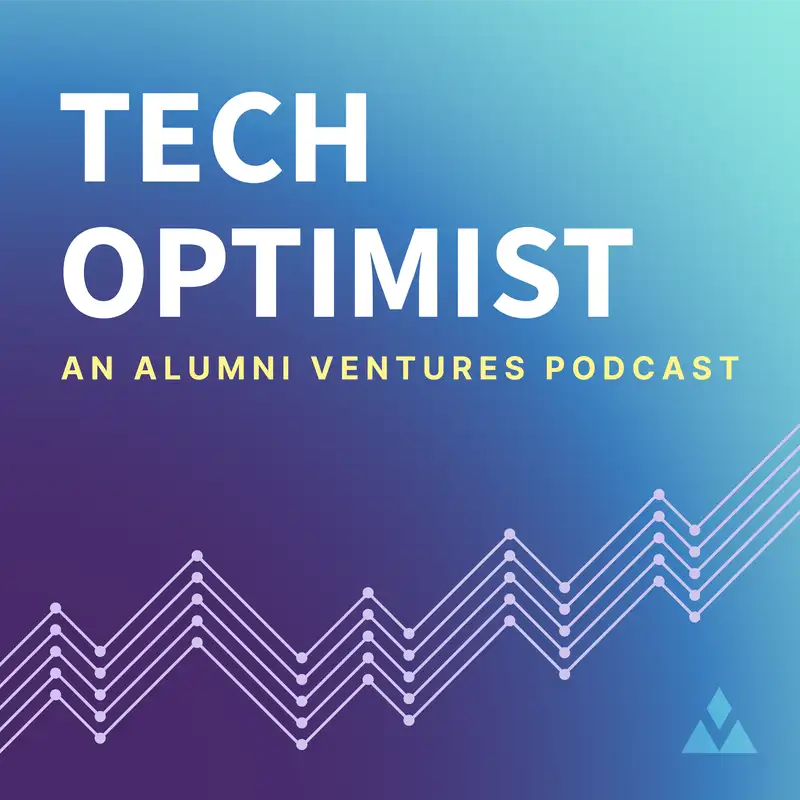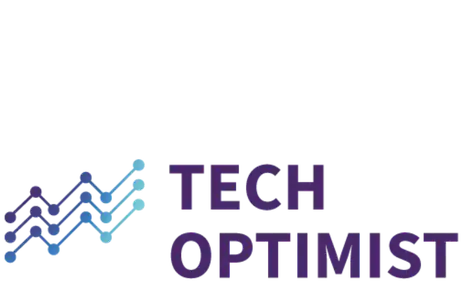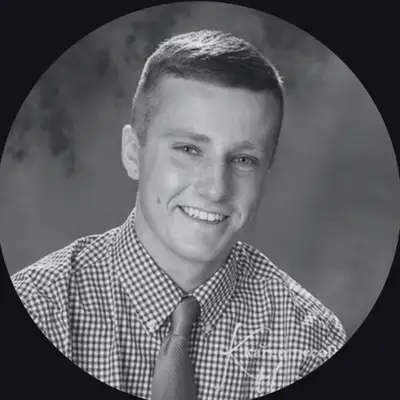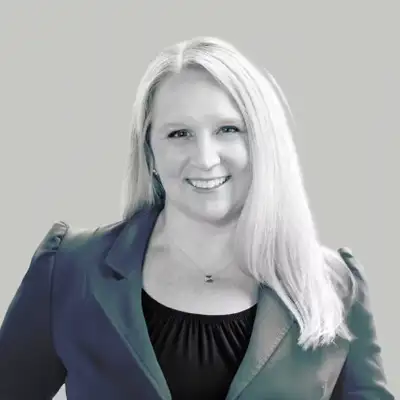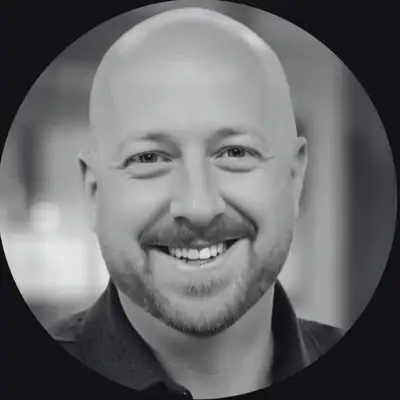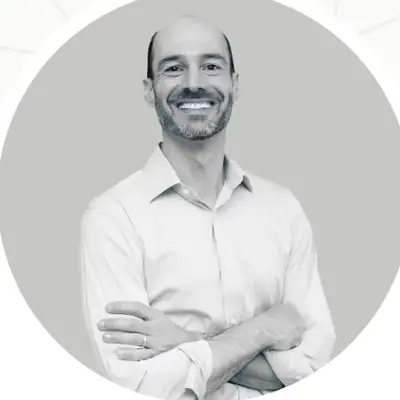#26 - Three Breakthroughs: Chevron and the Startup Space, Bridge Gene Editing Breakthrough, and AI Arms Race
Sam:
My name is Sam, the footnote writer for the show. Today you're going to hear about how to unzip DNA. This is the Tech Optimist.
Mike Collins:
This has huge implications on multiple dimensions and in ways that I don't pretend to fully anticipate.
Matt Caspari:
The implications in medicine are vast. There's a lot of really complex genetic disorders that you can't get at with just CRISPR.
Mike Collins:
But, just give somebody a chunk of money based on their talent and let them just go, when that is done, good things happen.
Sam:
In a world captivated by criticism, it's easy to overlook the groundbreaking technologies shaping our future. Let's shine a light on innovators who are propelling us forward. As the most active venture capital firm in the US, we have an exceptional view of tech's real world impact. Join us as we explore, celebrate, and contribute to the stories of those creating tomorrow. Welcome to the Tech Optimist. As a reminder, the Tech Optimist podcast is for the informational purposes only. It is not personalized advice, and it is not an offer to buy or sell securities. For additional important details, please see the text description accompanying this episode.
Mike Collins:
Great.
Matt Caspari:
Yeah.
Mike Collins:
Are you ready?
Matt Caspari:
Let's do it. I'm ready.
Mike Collins:
Let's do it, okay. Welcome to this episode of the Tech Optimist podcast, our three breakthrough show where we talk about what we think are three notable breakthroughs the last week or two. I'm Mike Collins. I'm the founder and CEO of Alumni Ventures. I'm joined by Matt Caspari, one of our managing partners from our west coast. Hi Matt.
Matt Caspari:
Yeah, good to see you, Mike. Yeah.
Mike Collins:
All right, so I think I'm going first today, and this is a little bit of a build on one from about a month ago, where identified really this trend that has been happening, which I'm calling it kind of the electric fence, going up on regulation, bureaucracy coming from our court system. This was before maybe the most monumental of this is the Chevron ruling. Right? The Chevron preference, which basically gave our executive branch institutions, FTC, SEC, IRS, really a deference when it came to interpreting the law. The idea that the legislative branch would have the big picture, the broad framework, and then it would be up to "the experts" within the regulatory space to really make the rules.
I think this is about, we're venture capitalists and we obviously deal with these institutions in industry after industry, our portfolio companies do. Listen, I think this has huge implications on multiple dimensions and in ways that I don't pretend to fully anticipate. I think it is seismic in the implications for particular companies and particular industries, from healthcare and getting things approved by the FDA, to in the venture capital space. I founded our company really on the heels of the Jobs Act in 2012.
Matt Caspari:
Yeah.
Mike Collins:
That was interpreted, in my opinion, very, very narrowly by the SEC to the fact that there are whole parts of the Jobs Act that became impractical. There were really, in my opinion, the legislative intent was very different than the way the SEC interpreted it. I think we're going to see it in industry after industry, we are going to see it in the venture capital space as far as how things get done, how things are going to go. I think, again, like a lot of change, there's huge opportunities for entrepreneurial companies to do new things, do things differently. I think it is seismic in its implications.
Sam:
What did these changes mean and when will we see them? That answer right after this.
Matt Caspari:
Hey everyone, just taking a quick break so I can tell you about the Deep Tech Fund from Alumni Ventures. AV is one of the only VC firms focused on making venture capital accessible to individual investors like you. In fact, AV is one of the most active and best performing VCs in the US. We co-invest alongside renowned lead investors. With our Deep Tech Fund you'll have the opportunity to invest in innovative solutions to major technical and scientific challenges, which can have a hugely positive effect on society, companies that have the potential to redefine industries and create a more sustainable future and deliver significant financial returns. If you're interested, visit us at av.vc/funds/deeptech. Now, back to the show. Any thoughts on how fast we're going to start feeling these changes?
Mike Collins:
I think you're going to see them fast because I think many of these agencies are going to become much more flexible when it comes to how they're going to view it. When there is going to be lawsuits, there's going to be threats of lawsuits. There's going to be preemptive stuff, I think, done by these regulatory things now that they're going to have to, so I actually think you're going to see some changes and I think you're going to see lawsuits in the matter of weeks and months. Where, again, just pick another sector, I think there's going to be lawsuits coming down in energy. I think there's going to be lawsuits coming down in healthcare. I think there's lawsuits going to be coming down in industry after industry on this. Again, I am not making a legal judgment. I'm not saying that as a citizen I necessarily like all of this stuff. I'm literally saying change is coming, and change is coming in a big way on how things are going to get done.
Matt Caspari:
Say generally from what we know, positive for those looking for innovations to get out of the lab and into the marketplace.
Mike Collins:
I think so.
Matt Caspari:
Yeah, yeah.
Mike Collins:
I think in trying to ... I'll give you a very specific example that I can speak to personally, which is in the venture capital space, it is very restrictive in being able to invest in venture backed companies is restricted to a group of people called accredited investors.
Matt Caspari:
Yep.
Mike Collins:
That, in our country, is defined by one's personal wealth and balance sheet. I think that that definition, and that has been all we need to protect people. I think that the restricting an American's ability to spend their own money and invest their own money is somehow expanded if you're rich, is not going to play very well with a judge or a jury. I think that's just one example of where I think change is coming and it's going to come pretty quickly, because, yeah.
Matt Caspari:
Great.
Mike Collins:
What do you got, Matt?
Matt Caspari:
Okay, yeah. The one I have is a new gene editing technology called bridge editing. Two papers came out in Nature last week talking about this discovery, and it was done by researchers at the Arc Institute, which is a nonprofit research institute in Palo Alto that's pretty interesting. They've got collaborations with Stanford, Berkeley, UCSF, and they've got really a novel model for collaborative research. They bring on these core research scientists and they give them this no strings attached multi-year funding agreement. The idea is that the researchers won't have to spend so much time fundraising, and they'll have a lot more flexibility and freedom to pursue research that they're really passionate about, but also can take risks on projects that could fail.
This research institute launched in late 2021 with $650 million in funding. The founders of Stripe played a key role in getting this off the ground. Really interesting to see some breakthrough research coming out of this institute. To understand that the potential significance of what we're talking about here with bridge editing, I think it's a good place to start, is talking about CRISPR, which I think a lot of people have heard about, but this was this major breakthrough in gene editing that allowed scientists to make precise edits to DNA. The scientists behind this won the Nobel Prize in chemistry in 2020. It's transformed genetic research over the last decade, allowed us to treat specific genetic disorders, is just one example of the impacts of CRISPR.
People talk about CRISPR's genetic scissors. You can go in, cut the DNA, and then you rely on the cell's repair mechanism to insert new DNA. Bridge editing, this new technique, doesn't actually cut the DNA. It unzips it, a small section, inserts new DNA, and then zips it back up. You're talking about a totally different method that should be a lot more precise, have less errors. Really the promise here is to insert any piece of DNA into any location in the genome. Rather than a technique that lets you cut DNA, you're talking about having this write capability directly into the genome.
The name of bridge editing, they called it this because it's physically or bridging two pieces of DNA. This could allow for just totally new ways of dealing with biology and biotechnology. We've talked about some of these in the past, but applying this to crops and agriculture, disease resistance, drought resistance. The implications in medicine are vast. There's a lot of really complex genetic disorders that you can't get at with just CRISPR. This new methodology could open up the opportunity there. Then there's this whole vast field of synthetic biology. You create novel organisms to do things like alternative fuels. Very exciting. This research is early. It was just done in E. coli, which is where a lot of this research starts. Hasn't been applied to humans yet, but this feels like one that we may look back on in a few years as this was a massive step forward for the field of biotechnology. An exciting one to watch.
Sam:
Regarding this insanely fascinating breakthrough that Matt shared here, the ARC Institute actually released a video of how bridge recombination works within their discovery. I wanted to share the video, so hop over to YouTube and watch the video version of this podcast there. But, there's also one audio with a really cool voiceover. Here is the video from Arc Institute explaining this breakthrough that Matt just brought to the table. Enjoy.
Speaker 4:
What if we had the capability to recombine, insert, excise, or invert any two pieces of DNA? A team led by scientists at the Arc Institute has discovered that jumping genes from the IS110 family produce a new kind of non-coding RNA guide that enables fully programmable DNA rearrangements. Uniquely, this bridge RNA contains two loops, one that guides the recombinase enzyme to the genomic target site, and a second that recognizes the donor DNA. Once bound to both DNA substrates, the recombinase forms composite active sites to swap the top strands between the two DNA molecules. Following strand exchange, the DNA forms a holiday junction like intermediate.
Finally, the bottom strands are exchanged to fully recombine the two DNA molecules without creating unwanted DNA breaks. Bridge RNA loops can be independently reprogrammed to insert, excise, or invert any two DNA sites of interest, allowing us to make flexible genome manipulations beyond what's possible with CRISPR. Now for the first time, the bridge recombination system gives us precise control over large scale DNA rearrangements, enabling a new generation of genome editing and design.
Mike Collins:
Yeah, and again, I think it's like alternatives in that space are good as well. I know there's been some patent dispute issues related to CRISPR.
Matt Caspari:
Yeah.
Mike Collins:
If there's other ways to achieve innovation and experimentation there, I think that's nothing but good. Again, your bigger point too about everybody thinks of VCs as being just, oh, we want the practical short term implications, but there is such an important role in our society for basic research and letting people go where they want to go intellectually, just from their curiosity and not having to spend two-thirds of their time raising money, applying for grants. But, just give somebody a chunk of money based on their talent and them just go.
Matt Caspari:
Yeah.
Mike Collins:
I think we have found that, when that is done, good things happen. It's like it's a role in our society of the super successful paying it forward with these kinds of just open-ended grants. I think we've seen that in the nonprofit space with Melinda Gates and just these individuals that are just writing checks, versus trying to micromanage this, that, or the other thing. It's just like, if you've got a great researcher, if we can just write them checks and them do their thing.
Matt Caspari:
We get developments like this. Yeah, super exciting to see new approach to basic research and getting some really strong results quite quickly. Again, they just opened this a few years ago, so pretty cool.
Mike Collins:
Then life science is just so much exciting stuff going on. Yeah, my third one is, again, just a bit on the same theme of, it was the recent AI release coming out of Claude and Perplexity. I think when you had ChatGPT coming out with ChatGPT 3.5 and then 4.0, I think there was people thinking it's like, oh, they're going to take it. I think now mid-year 2024, with releases that we're seeing out of Google, I think what you're seeing out of Meta, I think what you're seeing out of Apple, I think some of these other chip companies coming online like Rock, and again, seeing great things out of Perplexity and Anthropic, I just think this, and again, I was playing around with Anthropic's latest release, and it's just really, really strong, really, really powerful, has its own take on things.
I just am now seeing kind of a suite where those looking to bring AI into their own workflows, into their own businesses, into their personal lives, that you have a suite of tools now that are available that have their own strengths and weaknesses. It's like you want to have them all available, frankly. Then combining that with seeing AI being built within tools that you're already comfortable with and using. You may be really a fan of Canva or something like that. Just seeing those companies building it in, I just, again, see the pace of AI releases and developments coming hard and fast. Just, again, I have now hit the tipping point where it's just like, I just think it's just like the App Store or software. You're going to have a variety of tools to do things well, and now we have a whole class of new tools that are AI tools to help you do something.
Matt Caspari:
What do you think about the agents coming? Do you think your agents will tap into different models depending on the cost of the models, the use case? It feels like it may be hard for the individual to figure out what's the right model or the optimal model for the specific situation.
Mike Collins:
Yeah, I mean, the issue of agents I think is we're right on the cusp of that. I don't think we're quite there yet. I don't think a lot of people are trusting these systems yet to do a lot of stuff commercially on their own. Right?
Matt Caspari:
Yep.
Mike Collins:
They're still a little bit of middle schoolers or teenagers, frankly.
Matt Caspari:
Check in on them.
Mike Collins:
You need pretty strong oversight kind of thing. But, I think what you're starting to see is companies and individuals developing workflows where they're intervening at checkpoints to double check. They may break down a workflow into three or four parts with a couple of different intervention points, and then obviously one right at the end before deployment.
Matt Caspari:
Yep.
Mike Collins:
But, I see those strings getting longer and longer and people's confidence with them going. I'm seeing this with self-driving technologies, which is, it used to be, oh, this is basically cruise control plus that I'm only going to use on the highway, and then with great dubious care. Now I think the state of play is people are doing it in routine drives. It's not just push the button and go in the back seat, but I do think the segments where one feels good about deploying it growing and growing quarter over quarter in a significant way. Yeah, I just think it's more and more, and more and more responsibility that we're giving to these systems. But, I think the Anthropic release, big deal. I just think there's going to be many winners here and they're going to all find their niches over time.
Matt Caspari:
Yeah, super exciting.
Mike Collins:
Excellent. Another good week.
Matt Caspari:
Okay. Yeah, great to see you.
Mike Collins:
Thank you.
Matt Caspari:
Take care.
Mike Collins:
Have a good one, Matt. See you.
Matt Caspari:
You too.
Mike Collins:
Bye.
Sam:
You know me, being the sort of guide for this show, I have heard a lot of interviews and I've heard a lot of CEOs and entrepreneurs and startup owners talk about AI and talk about AI tools that they use every day. Like Mike was talking about, use those AI tools within their workflow. I too, after listening to Mike and all these people that he brings on the show, I too have changed my own workflow with how I research for this podcast, how I edit this podcast, how I organize myself and all of the files that we have for this show. I wanted to share a few that I use that I have picked up from this show.
Perplexity was one that Mike and Matt talked about today, and I use that every day. Perplexity is a constant tab that is open on my Google Chrome that I use every single day for literally any questions that I have. It's really good about summarizing and picking research from a bunch of different sources, and providing just a lot of content for you to answer any questions that you might have asked it. Then recently, after listening to this interview with Mike and Matt, I have started using Claude, which Mike brought up here with his other third breakthrough. It too, it's like another version of ChatGPT. I've been using both ChatGPT and Claude. Mike is very right, they both are used for their own sort of specialty baggage of things, but they too have really helped my workflow.
Another one, which is for more fun stuff that I use for other things, is Midjourney. Midjourney is that sort of image generation AI, which you can use through Discord directly through their server modifications. Yeah, these are just some AI tools that I have used after listening to a bunch of these interviews and/or doing some research myself. But, we are going to round out this episode with one more short break. Thanks so much for listening to the Tech Optimist. See ya.
Speaker 5:
Do you have a venture capital portfolio of cutting edge startups? Without one, you could be missing out on enormous value creation and a more diversified personal portfolio. Alumni Ventures, ranked a top 20 VC firm by CB Insights, is the leading VC firm for individual investors. Believe in investing in innovation? Visit av.vc/foundation to get started.
Sam:
Thanks again for tuning into the Tech Optimist. If you enjoyed this episode, we'd really appreciate it if you'd give us a rating on whichever podcast app you're using, and remember to subscribe to Keep up with each episode. The Tech Optimist welcomes any questions, comments, or segment suggestions. Please email us at info@techoptimist.vc with any of those, and be sure to visit our website at av.vc. As always, keep building.
